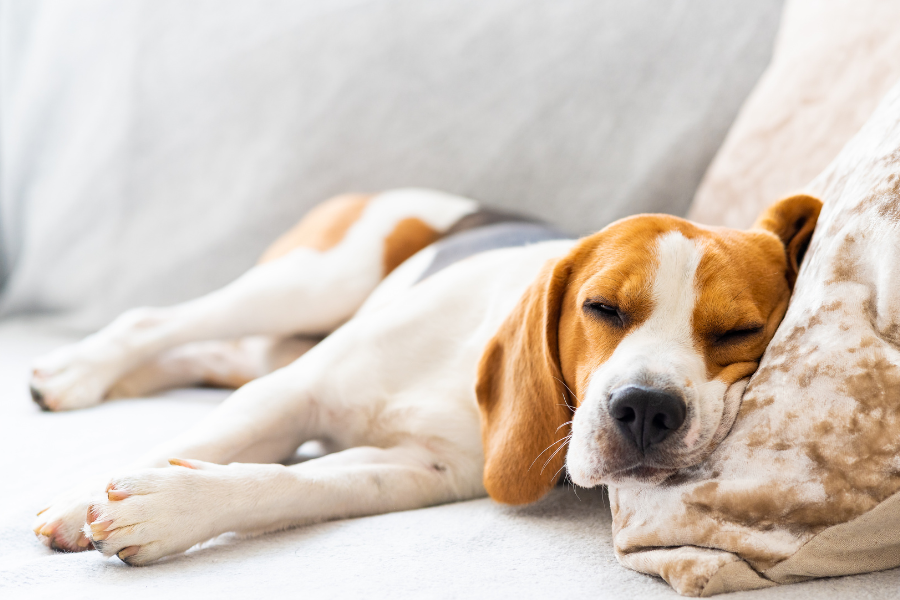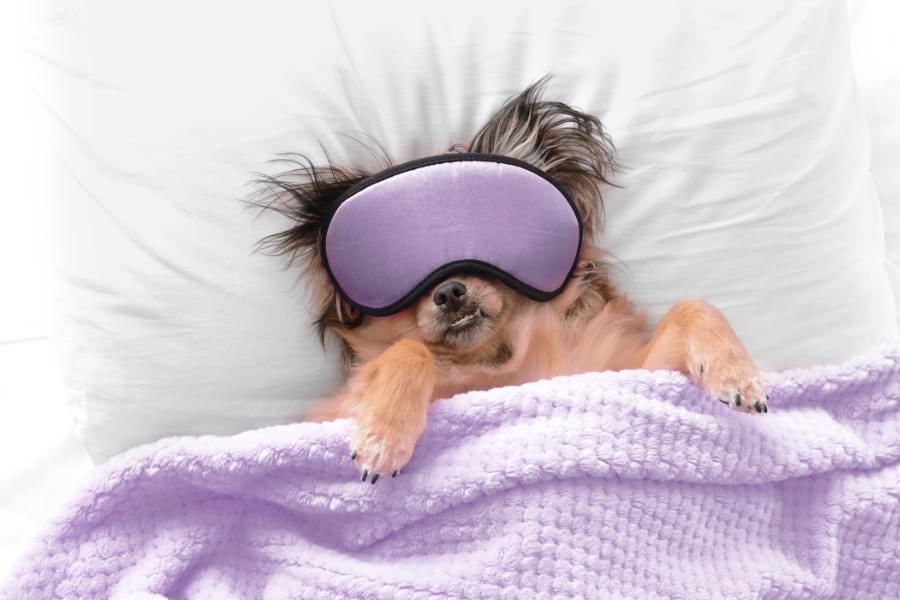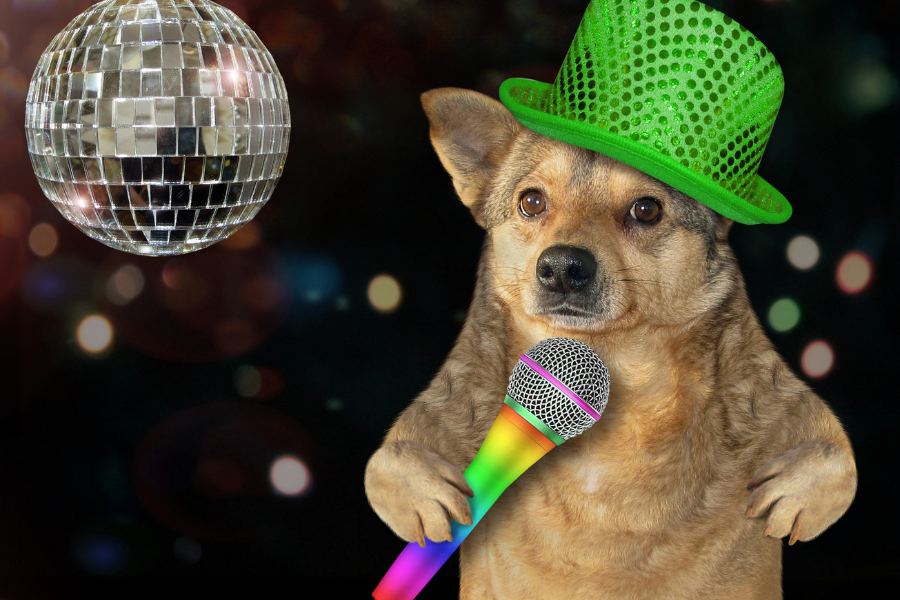Picture this: it’s late at night, your home is quiet, and you’re cozied up in bed. Suddenly, you hear a faint, eerie sound. Is that... a ghost? Nope! It’s your loyal pup, howling in their sleep like the star of their own werewolf movie.
If you’ve ever wondered why dogs howl in their sleep, you’re not alone. It’s a fascinating (and slightly adorable) behavior that many dog owners experience. While it might sound a little spooky, there’s usually no reason to worry. Dogs, like humans, dream—and sometimes their dreams are so vivid that they howl, bark, or twitch as if they were chasing squirrels in their dream world.
But what exactly is going on in your dog’s brain when this happens? Let's explore the science behind this behavior, whether or not it's something to be concerned about, and how you can make sure your four-legged friend is getting quality rest.
Do Dogs Dream?
First things first—yes, dogs dream! Scientists have found that dogs, just like people, go through different stages of sleep. One of these stages is REM sleep (Rapid Eye Movement), where most dreaming occurs. During REM sleep, your dog’s brain is just as active as it is during their waking hours, processing memories, emotions, and experiences.
Think of it this way—your pup’s day was full of sniffing lampposts, meeting other dogs at the park, and eating maybe (definitely) one too many treats. When they fall asleep, their brain replays snippets of their day, much like your brain does when you dream. And for some dogs, that dream includes a bit of dramatic howling.
Why Do Dogs Howl in Their Sleep?
The howling you hear is most likely your dog reacting to something happening in their dream. Here are a few possible reasons for this behavior:
1. Dream Dramas
Dogs often dream about situations they experienced or imagined while awake. That could mean dreaming of an exciting chase, an intense tug-of-war match, or even reliving encounters with other dogs. If the dream is particularly vivid or intense, your dog might vocalize with a howl, bark, or whimper.
2. Genetic Instincts
Dogs are descendants of wolves, and howling is a natural behavior for wolves to communicate across long distances. While your dog isn’t using their howls to locate their pack anymore (you’re their pack now!), the behavior could be a deep-rooted instinct bubbling to the surface during their dreams.
3. Emotional Processing
Dogs have emotions (and a lot of them)! When they sleep, their brains process feelings like joy, excitement, frustration, or fear from their day. If your pup seemed stressed or overly excited recently, their howling might be tied to their emotional state.
4. Mimicking Real-Life Sounds
Sometimes dogs incorporate real noises into their dreams. Heard a siren? A neighbor’s dog barking? These sounds might subtly work their way into your pup's dream, leading to howling as part of their imagined adventure.
Is Sleep Howling Normal?
Good news—sleep howling is normal behavior for most dogs. It’s as common for some dogs as twitching paws and tail wagging during sleep. Generally, it’s nothing to worry about. However, there are a few instances when you should pay closer attention.
When to Be Concerned
- Frequent Disturbances: If your dog’s howling disrupts their sleep or yours regularly, it could indicate restlessness or stress.
- Signs of Seizures or Disorders: If the howling is paired with excessive twitching, stiffness, or other unusual behavior, speak to your vet to rule out medical issues like seizures.
- Lack of Energy or Health Changes: If your dog suddenly starts howling more in their sleep and you notice changes in their appetite, energy level, or overall behavior, it’s worth calling your vet.
How to Help Your Dog Sleep Peacefully
While the occasional dream howl is cute, there are ways you can help your dog feel as comfortable and relaxed as possible while sleeping:
1. Create a Cozy Sleeping Environment
Make sure your dog has a quiet, comfy spot to sleep—preferably somewhere calm and separate from loud noises or distractions. A supportive dog bed that caters to their size and breed can work wonders for their comfort.
2. Establish a Routine
Dogs thrive on routine. Try to keep their feeding, walking, and bedtime schedule consistent so they know what to expect. A well-fed, well-walked pup is a happy (and sleepy) pup.
3. Exercise Their Mind and Body
Dogs need a good mix of physical and mental stimulation throughout the day. Regular exercise and activities like puzzle toys or training sessions can help tire them out for a restful night.
4. Stay Calm and Reassuring
If your dog wakes up from a particularly intense dream howl, comfort them gently. Speak softly, pet them, and reassure them that everything is okay. Sometimes, all they need is their human's love to feel secure.
5. Monitor Changes
Keep an eye on your dog’s sleep habits and behavior. If you notice anything unusual, don’t hesitate to consult your vet. They can provide insights and recommendations tailored specifically to your pupper.
Fun Fact: Do Dogs Recognize They're Dreaming?
We might not have a definitive answer to this question, but experts agree that a dog’s dream state is very similar to a human’s! While they may not know they’re dreaming, the content of their dreams probably feels incredibly real to them. Imagine the excitement of running through an endless field of tennis balls—sounds like a dream come true, right?
What About Other Sleep Behaviors?
Dogs don’t just howl in their sleep. Here are some other quirky things pups do while they snooze:
- Twitching: Those tiny paw movements or ear flicks are signs your dog is deeply asleep, likely chasing imaginary squirrels.
- Barking: Just like howling, barking can be a reaction to a dream. It’s often short and sharp, like an imaginary warning or excitement cue.
- Running in Place: Cue the “dog dreaming of chasing rabbits” cliché. This typically happens during REM sleep when dreams are most vivid.
- Snoring: Some breeds, like bulldogs, are more prone to snoring due to their facial structure. It’s normal (and sometimes hilarious to hear).
The Final Word on Sleep Howling
While it might sound like your dog is gearing up for their Broadway debut in The Howling Chronicles nighttime howling is usually just a sign that they’re engaged in a good ol’ doggy dream. It’s nothing to stress over and often provides a little insight into your pup's unique personality.
However, as a responsible dog parent, always keep an eye out for patterns. If your dog’s howling seems excessive or unusual, don’t hesitate to reach out to your vet. A health checkup is always a good idea.
After all, sleep is essential—for you and your dog. And who knows? Maybe the next time your pup lets out a dreamy howl, they’re dreaming about the wonderful life they get to share with you. Sweet dreams, pupper!
References
1) Kovács E, Kosztolányi A, Kis A. Rapid eye movement density during REM sleep in dogs (Canis familiaris). Learn Behav. 2018 Dec;46(4):554-560. doi: 10.3758/s13420-018-0355-9. PMID: 30264371.



